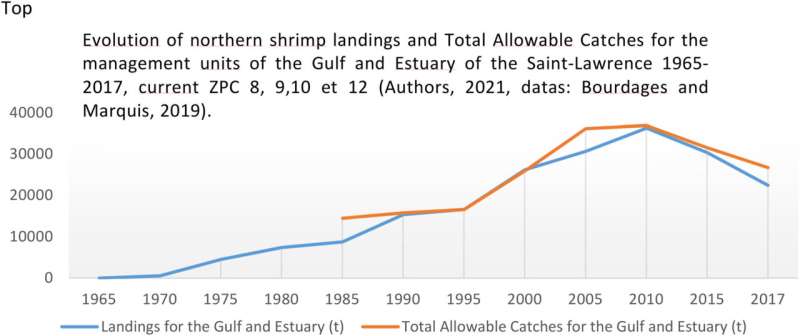How can a cooperative-based organization of Indigenous fisheries foster resilience of declining stocks?

A recent study in Environmental Policy and Governance explored how a cooperative organization of various stakeholders can help foster the development of a coastal fisheries-dependent community without increasing the pressure on the resource it harvests.
Using an example of northern shrimp Indigenous fisheries in eastern Québec, the work shows how diversification strategies combined with a cooperative-based and community-development–oriented organizational model seem to support communities' resilience to the effects of changes in fishing stocks, even when this activity is crucial in their economies and when these stocks are decreasing.
"This paper aimed at contributing to the knowledge about the effects of social innovation in natural-resource-dependent coastal communities confronted with global changes by questioning collective socially innovative practices implemented by Indigenous communities," the authors wrote. "Few studies have been conducted about Indigenous fisheries in North America and we believe that this case can also, in general, inform actors, inside and outside the fishing industry, about the importance of new forms of cooperation among different groups (what we call 'unusual alliances') to foster resilience to global and climate change and promote a more environmentally and socially just development."
More information: Marco Alberio et al, How can a cooperative‐based organization of indigenous fisheries foster the resilience to global changes? Lessons learned by coastal communities in eastern Québec, Environmental Policy and Governance (2022).
Provided by Wiley



















